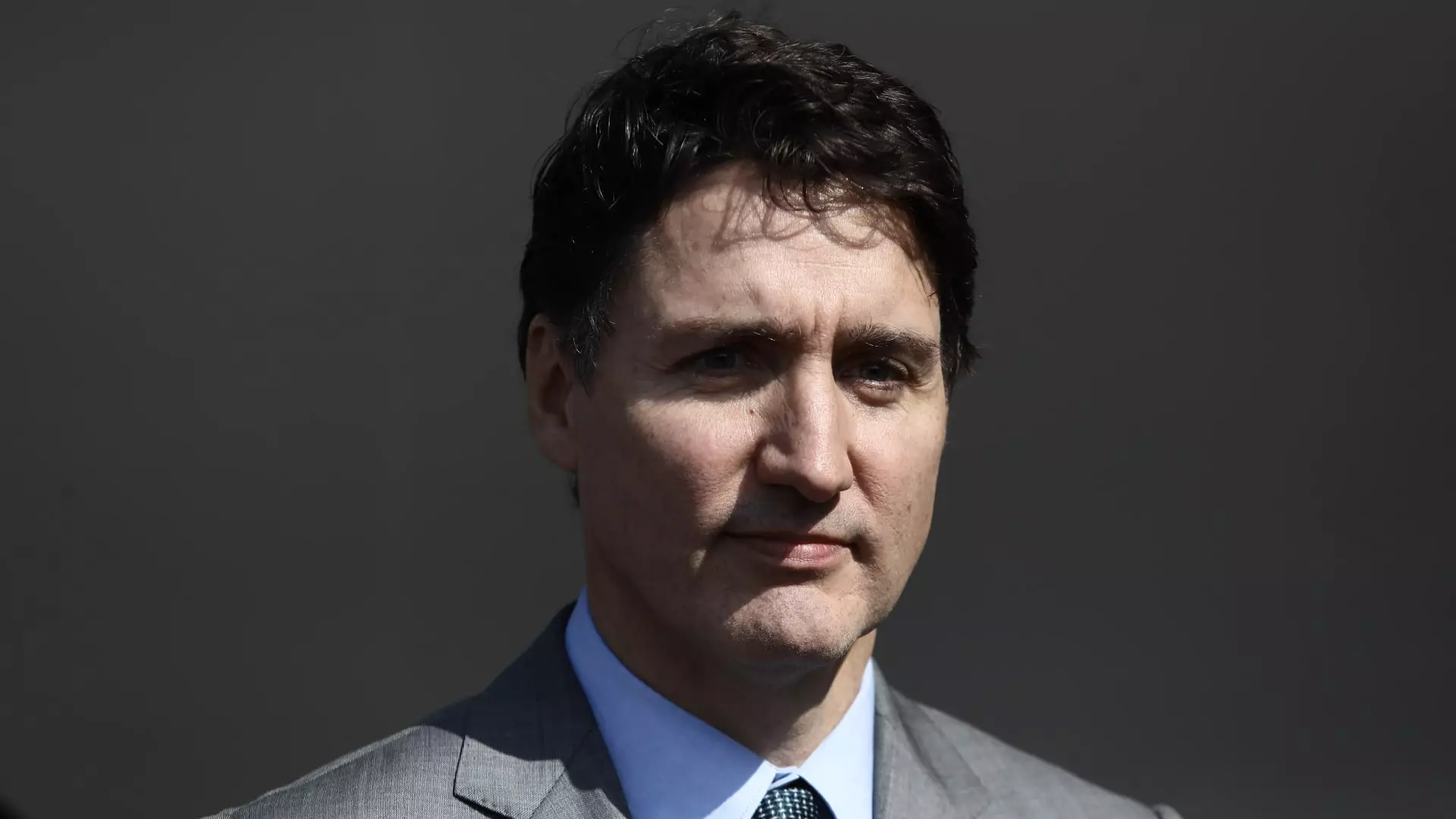In the realm of Canadian politics, the tenure of Prime Minister Justin Trudeau has become increasingly precarious as whispers of his potential resignation grow louder. An anonymous source recently revealed to Reuters that Trudeau is contemplating stepping down from his position as leader of the Liberal Party, though no definitive decision has yet been made. This consideration comes as political analysts scrutinize the landscape, noting that the Liberal Party is facing a daunting challenge in the upcoming elections against the Conservative Party, which is currently leading in polls.
For Trudeau, navigating a political environment marked by rising discontent has proven to be a formidable challenge. Reports from the Globe and Mail suggest that a heightened urgency among Liberal parliamentarians has arisen in light of unfavorable polling results. Calls for Trudeau to resign have intensified as members express alarm over the party’s declining position in the House of Commons. The timing of any potential announcement is critical; it may occur before an imminent emergency meeting with Liberal legislators, indicating a need for immediate action to bolster the party’s standing.
The reality that the Liberal Party could enter the election cycle lacking a permanent leader complicates the scenario further. As the political landscape transforms, the party must contend with the implications of leadership uncertainty, which could detract from their ability to mount a cohesive strategy in the face of a determined opposition.
Trudeau’s governance has not been without its share of controversies, particularly concerning his handling of key policy issues. His attempt to demote Finance Minister Chrystia Freeland marked a significant turning point, drawing attention to internal rifts within his cabinet. Freeland’s resignation, accompanied by her public rebuke of Trudeau’s approach, highlights the struggles within the Liberal ranks. This incident exemplifies the delicate balance of power dynamic Trudeau must navigate to maintain party cohesion while also addressing critiques regarding fiscal responsibility and progressivism.
In the face of rising inflation and a difficult economic climate post-pandemic, Trudeau’s government has been criticized for its spending policies, which, despite generous support for consumers and businesses, have failed to quell public dissatisfaction over the cost of living. The Liberal agenda, once celebrated for its progressive ideals and commitments, is now being assessed against the backdrop of economic realities that have rendered those promises more challenging to fulfill.
As speculation swirls around Trudeau’s leadership, the implications of his potential departure resonate deeply within the Liberal Party. Should he announce his resignation, the party may find itself at a crossroads, requiring not only a new leader but also a revitalization of its foundation. The urgency for a strong candidate to lead the party through its electoral hurdles cannot be overstated. A swift decision may be necessary to unify the party’s framework and outline a coherent strategy moving forward.
Moreover, the political landscape may invite discussions around interim leadership, with suggestions that Finance Minister Dominic LeBlanc could assume the role. However, the feasibility of this transition hangs in the balance, especially if LeBlanc seeks to run for the permanent leadership position. This dilemma underscores the complexities that arise from a potential leadership vacuum and the pressing need for the party to establish stability in a tumultuous political climate.
Prime Minister Justin Trudeau’s possible exit from leadership signals a profound moment in Canadian politics. As pressures mount from both within and outside the party, the implications of his decision extend beyond his personal career and delve into the intricate dynamics that define the Liberal Party’s future. With elections looming and the Conservative Party gaining momentum, the calls for change and strategic consolidation are louder than ever. The broader implications of these developments will undoubtedly shape the trajectory of Canadian governance as the nation assesses its political direction in the face of uncertainty.


Leave a Reply